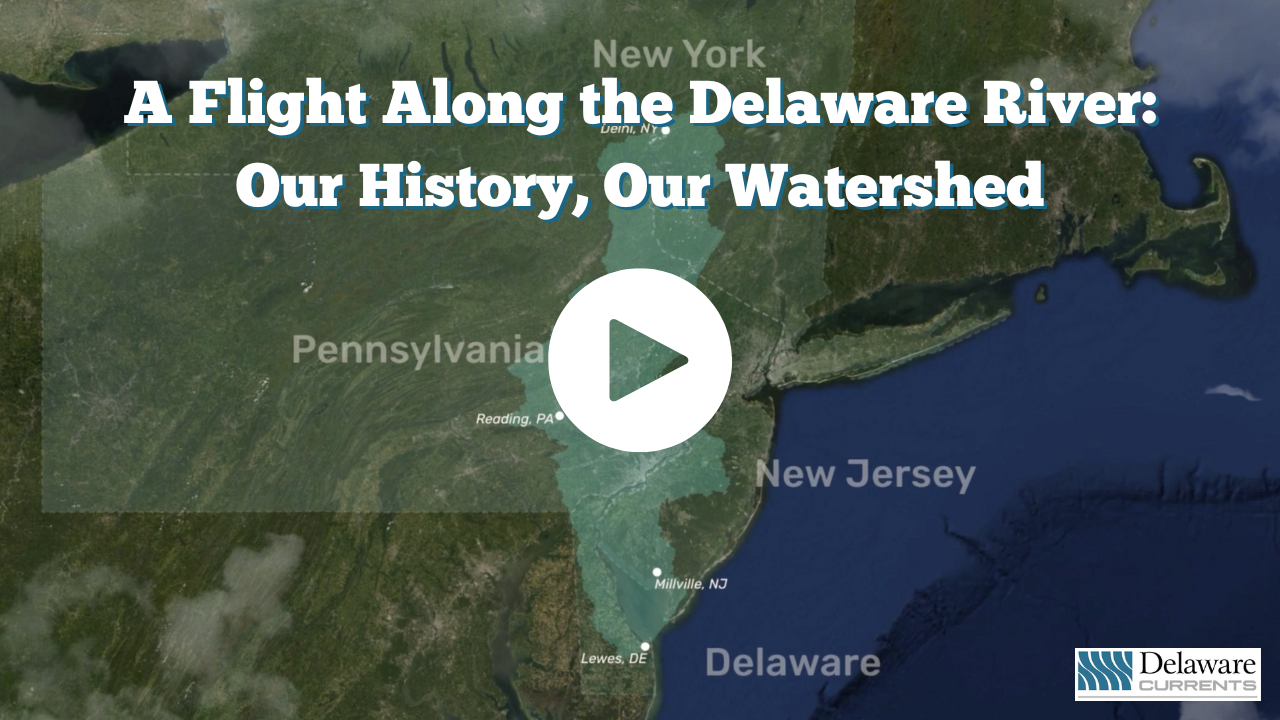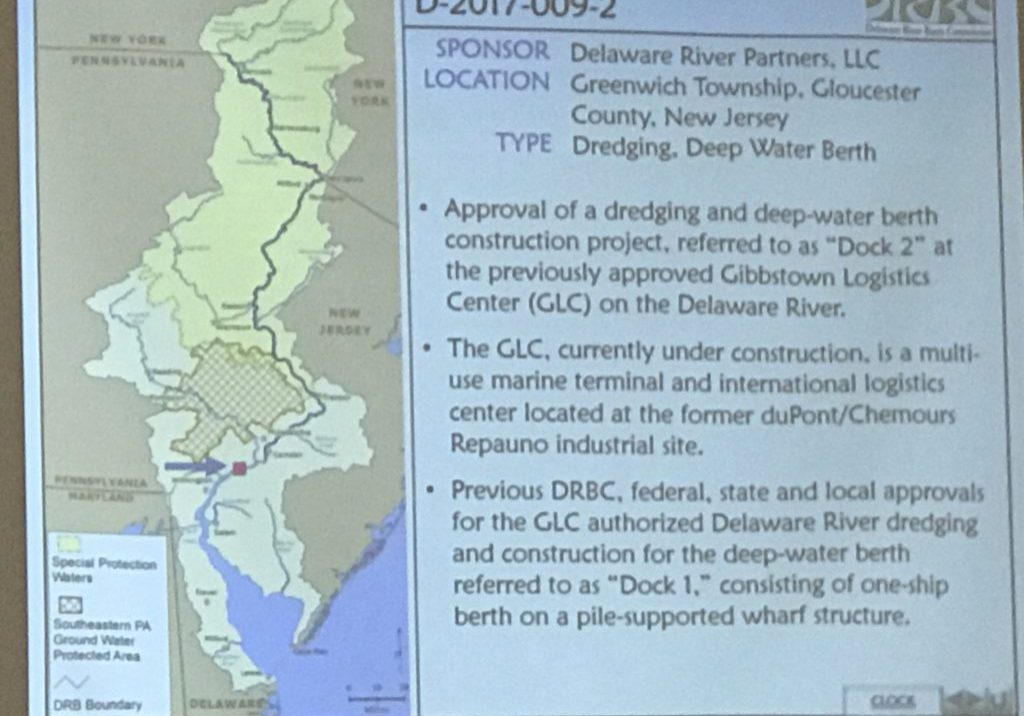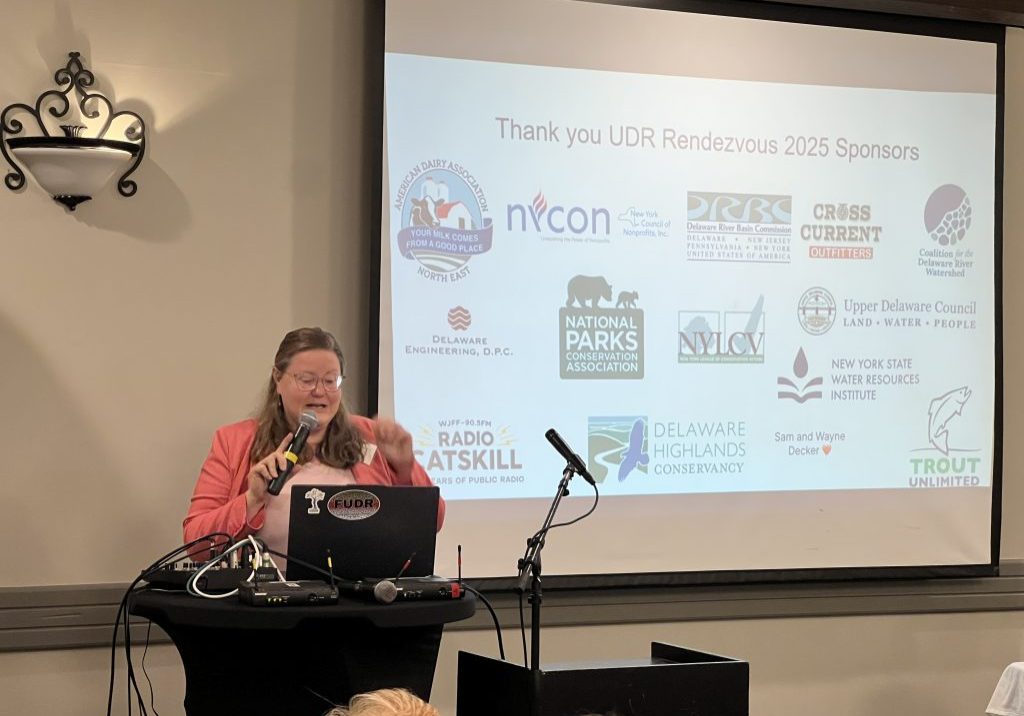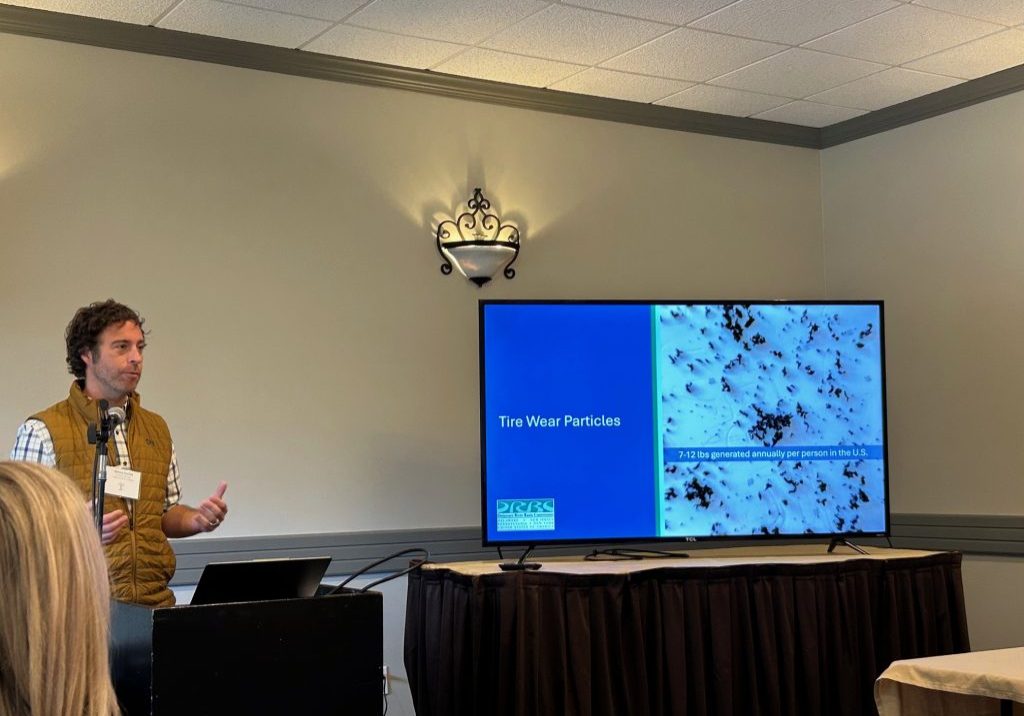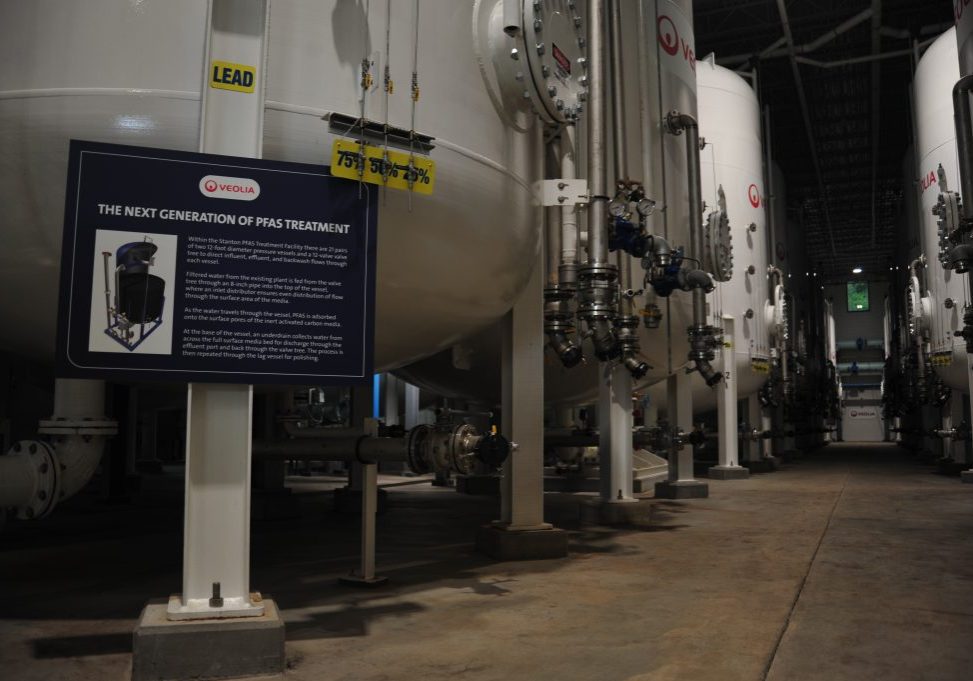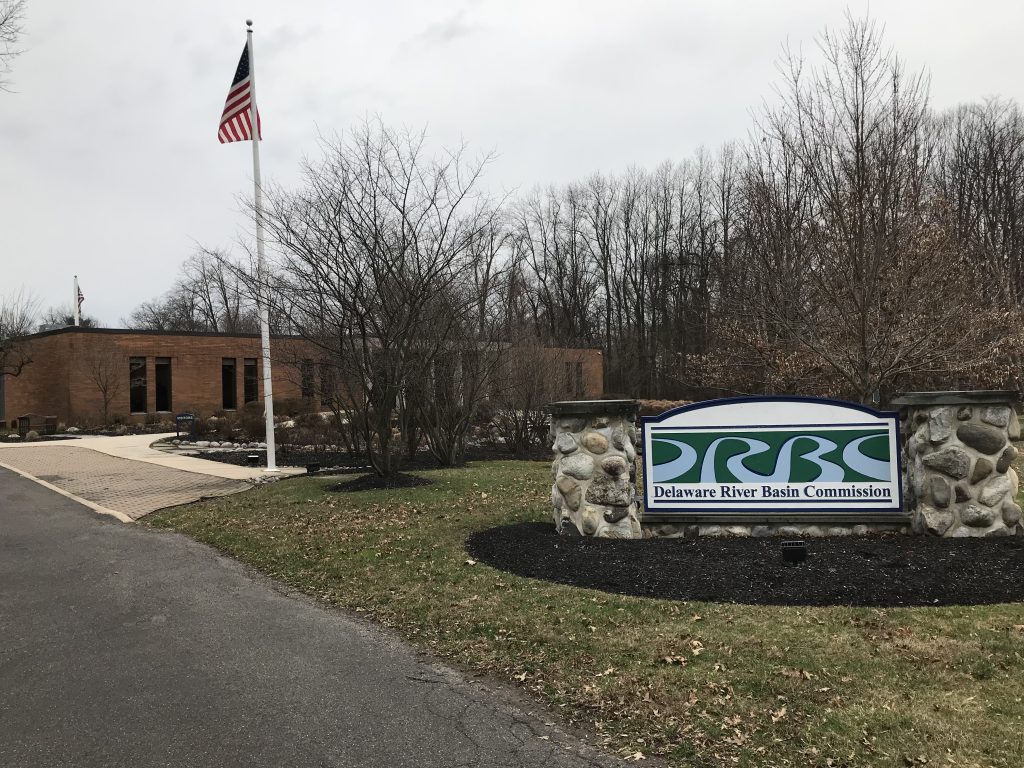
DRBC proposed rule changes draw scrutiny and criticism
| November 13, 2023
This story is a revision of a previous story about the public hearings held on Monday, Nov. 13, about the Delaware River Basin Commission’s proposed amendments to its Rules of Practice and Procedure. This revision includes comments from DRBC officials, who were not available to answer questions on Monday evening when the story was filed.
From the perspective of the Delaware River Basin Commission, its proposed amendments to its “Rules of Practice and Procedure” were a simple “tidying up” of outdated rules.
But about 12 people spoke at two public hearings held on Monday — many of them members of the Delaware Riverkeeper Network — and they were clearly outraged at the proposals.
Looming over many of those changes was the shadow of a hearing held in June 2019 about a port on the Delaware River, in Gibbstown, N.J.
This was a key part of a proposal by New Fortress Energy to take natural gas sent via pipeline to a proposed liquification plant in Wyalusing in Northeastern Pennsylvania, where it would be super-cooled and as much as 3 million gallons of LNG a day would then be transported by rail and highway tankers to a port Gibbstown.
From there, it would be shipped overseas. Lots of stories about that plan here.
The Delaware Riverkeeper discovered through a public records request that the DRBC’s executive director, Steve Tambini, acted unilaterally to extend the DRBC docket according to DRBC rules in 2022.
That action was in line with rules and regulations already in place, Tambini explained, though he also said that they “were fuzzy,” and that the proposed changes that were the subject of Monday’s hearings would make it quite clear what the executive director could and could not do.
Boiling all the proposed changes down, Tambini said, “If the commission has already approved a project, the DRBC executive director will only extend the project if nothing has changed.”
He repeated that line: “If nothing has changed.”
Lots of the verbiage about these changes and lots of details available here in the Federal Register and on the DRBC’s site.
The Delaware Riverkeeper Network was opposed to the port and the larger plan. Fiercely opposed. But the governors of the four states were not.
Below is the list of DRBC and the Riverkeeper’s interactions about the Gibbstown decision as supplied by the DRBC. Some milestones include:
- Initial public comment at special hearing 2019
- Commission approval June 2019
- Additional written comment March-April 2020
- Adjudicatory hearing May 2020
- Hearing officer report July 2020 (sided with the DRBC’s June 2019 decision to approve) more info here.
- Commission final approval December 2020
- Appeal to District Court January 2021
- Extension by ED June 2022
- DRN provided written comment August 2022
- Extension approved by DRBC resolution September 2022
- District court case, brought by the Delaware River, ended March 2023, siding with the decisions of the DRBC
You might deduce from all these actions that the Delaware Riverkeeper was angry that Tambini’s decision to allow an extension has been supported by several different layers of review.
But those reviews, as well as the commissioners, supported the decision.
But the proposed rules revisions foster, according to Tracy Carluccio, deputy director of the Delaware Riverkeeper Network, “backroom decisions.”
Further, she said, they place “far too much authority in the executive director.”
“The commissioners are supposed to represent us,” she added. She urged transparency and suggested that, under these revisions, the commissioners themselves might not know what the executive director has acted on.
There is nothing in the proposed changes that indicate decisions would not be reviewed by the commissioners. As far as how much autonomous authority he has, Tambini said, referring to the governors of the four states, “I have four bosses.”
Public records rules change with regard to FOIA references
The other section of the changes that troubled those who spoke was the elimination, as they saw it, of the federal Freedom of Information Act.
Doug O’Malley, state director of Environment New Jersey, warned against “decisions made behind closed doors,” without the ability of the public to access important information.
“This means the process can be messy,” he said. “But more access is better. Democracy can be messy.”
“In this unprecedented era of public distrust,” he asked the DRBC to withdraw the proposed rules.
But Tambini, as well as legal counsels for the DRBC (Pam Bush, the commission secretary and assistant general counsel, and Kevin Pregent, associate counsel) confirmed that the public records process and procedure that the DRBC follows now will be unchanged.
The difficulty that caused the change is that the DRBC is not a federal agency and therefore the term “federal Freedom of Information” is misapplied and causes confusion.
Here’s the redline version of all the changes, where you can see the comparisons of what’s in and what’s out. The specific section that outlines how the process is unchanged is in Subpart H — Public Access to Records and Information.
As the slide presented at the hearing noted:
“No substantive changes are being proposed to the Commission’s public access to records regulations.”
“No changes are proposed to the Commission’s interpretation or application of the current regulations.”
“Current regulations contain references to the federal Freedom of Information Act (FOIA) that are inaccurate because FOIA does not apply to non-federal agencies such as the DRBC.”
While the oral public comment period has ended, written public comment will be accepted until 5 p.m. Nov. 30, 2023. More about this on the DRBC’s website.

